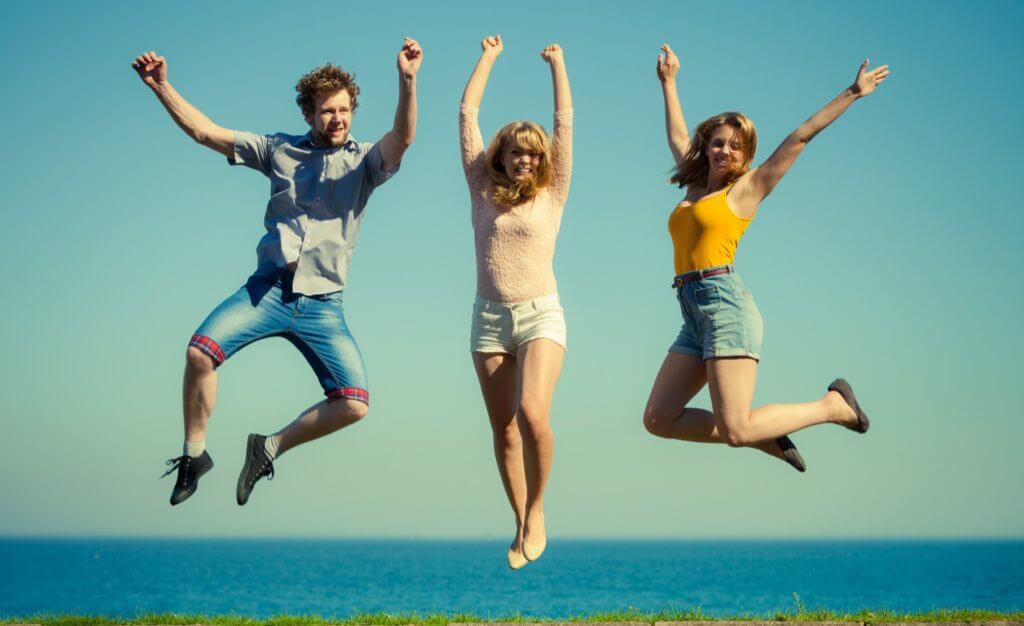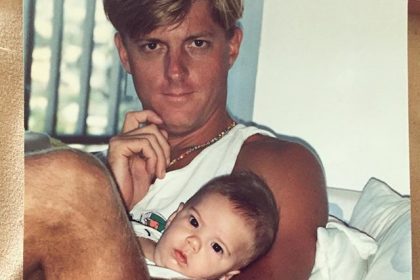As the dog days of summer really kick in with August, everyone starts to get a little looser. And while late summer activities bring fun, many also carry more than a hint of danger, particularly if the heat is starting to make you a little careless.
So if you’d rather spend the rest of your summer chilling on a beach towel instead of a hospital bed—or in the back of a police cruiser—take this quick refresher of summer safety tips.
On the water
As the temperatures rise, so does the urge to jump into nearby pools and waterways, and the likelihood of being on a boat. While playing in the water is a summer ritual that should never be discouraged, be aware of the risks that come with it.
Swim safety
“People look at a lake like it’s a playground,” said Dave Benjamin, executive director of public relations and project management for the Great Lakes Surf Rescue Project, which offers open water rescue training and certification for lifeguards and works with family and friends of drowning victims to advocate water safety.
“If you go to a playground that is water and you don’t know that drowning is one of the leading causes of accidental deaths in the country and the world, then you may be less safety-minded and less diligent watching the water while you’re there,” says Benjamin. “And then things happen.”
So, here are some “must-dos” for safety in the watery playground:
- Put children and inexperienced swimmers (even adults) in U.S. Coast Guard-approved life jackets. It may be a drag, but it’s far preferable to the potential alternative.
- Just because other people are doing something doesn’t make it safe. Heed any posted warning signs, and err on the side of caution.
- Avoid rivers after heavy rainfall, when water volumes rise and currents intensify. Be aware that hidden currents under the water’s surface do exist and can sneak up on you. At the coast, pay attention to riptide and sneaker wave warnings and learn to free yourself from these drowning hazards.
- Even wading comes with its share of danger, especially in late summer months when waterlines recede toward hidden drop-offs. Be aware of the geography.
- Don’t forget sunblock and protective clothing. And make sure it’s at least water-resistant, if not waterproof.
- Learn CPR and hope you’ll never have to use it, but know that you can if needed.
- Watch children more closely than you think you need to. If a child goes missing, check the water first, as seconds count in drowning situations. An adult should always be within arm’s reach of infants and toddlers in or around water.
- Know that many swimming holes and beaches are not watched over by lifeguards. Even if they are, take responsibility for your own safety and that of your group: use the buddy system.
Boating basics
Getting behind the wheel on the water comes with its own perils. In a recent release by the U.S. Coast Guard of its 2016 Recreational Boating Statistics, boating fatalities nationwide that year totaled 701, the highest number in the last five years. Bear in mind that boats handle different than cars; they take longer to stop or react to changes in direction.
Above all, remember to “boat sober.” Among 2016’s fatal accidents, alcohol was the leading known contributing factor and was listed as the leading factor in 15 percent of deaths. Alcohol slows reaction times, and the hot summer sun also increases alcohol’s effect on a boat’s operator. Bottom line: alcohol, sun, and boating are a deadly combination.
On the road
If you’re one of the 80 percent of Americans planning to take a road trip this summer, remember that this time of year can present unique risks on public roads and highways. In fact, the summer months commonly see a spike in auto accidents and fatalities.
“We are seeing it right across the country,” said John Paul, senior manager of traffic safety at AAA of Southern New England, about climbing traffic deaths. “More people on the road with cheap gasoline—when gas was very expensive, people were really watching their speeds on the road. Certainly, distracted driving is all in that mix. It is a combination of those things.”
Other factors:
- Along with the increase in traffic overall, many vehicles are laden with cargo for family vacations, or towing boats/trailers. There is also a substantial increase in motorcycle and RV traffic.
- Summer also sees states playing host to countless out-of-state drivers. Out-of-town motorists unfamiliar with the local landscape, local traffic laws, and local roads may slow or stop abruptly, or may execute dangerous driving moves to make a turn or exit.
- Summer is the season for celebration and events—and celebratory drinking. If you intend to drink, make sure you do so responsibly: make plans to stay the night, or arrange for a safe ride — whether that means a designated driver, taxi, or ride-share service like Uber or Lyft.
As a driver, you want to be especially vigilant on the road, scanning your surroundings for motorcyclists and slower moving vehicles, traveling at a safe speed, and following at a safe distance.
Even when you know the risks, wrecks can still happen when others are negligent. When a motorist causes an accident that results in injuries, victims have the right to seek a financial recovery of their damages—including medical expenses, lost income, and pain and suffering—by pursuing a personal injury case.
Around the house
Summer brings abundant opportunities for outdoor grilling with family and friends and fireworks at dusk. But use common sense (and a check into local laws) before firing up a grill or lighting a sparkler.
Whether you’re cooking over charcoal or gas, Tony Balzano, the chief inspector for the Elkhart, Indiana, fire department, emphasizes the importance of staying away from structures that could potentially catch fire—both beside and above the grill.
“We like to say stay at least 50 feet away from anything combustible, Balzano says. “Be careful what’s above you when firing your grill up—trees and wires.”
He adds that grills should also never be left unattended for long periods of time, and grillers should be mindful of weather conditions. High winds will stoke a fire, making it burn hotter and more intensely.
“If it’s a windy day, wind will make fire burn and make the fire rate more intense because it feeds it oxygen,” he notes.
To keep your cookouts safe:
- Prevent fires and explosions. Check the connection between the propane tank and the fuel line. Make sure the tubes where the air and gas mix are not blocked.
- Don’t overfill the propane tank. Overfilling can cause an explosion.
- Be careful with lighter fluid. Don’t add lighter fluid to an already lit fire. This can also cause an explosion.
- Grill outside. Grilling can produce carbon monoxide, a dangerous gas, so never grill in enclosed areas.
- Pour plenty of water over hot coals, and stir the coals to ensure the fire is out. Never place hot coals in plastic, paper, or wooden containers.
And speaking of fire, there are all sorts of fireworks laws to navigate (if you’re still blowing them off), but regardless, you’ll still want to follow these safety tips:
- Use fireworks outdoors, not indoors. Don’t light them near dry grass.
- Have a bucket of water and a fire extinguisher nearby. Before using fireworks, learn how to operate the fire extinguisher.
- Don’t wear loose clothing when using fireworks.
- Stand several feet away from lit fireworks. If one doesn’t go off, don’t examine it. Wait 15 to 20 minutes, stand back, extinguish it with water, and throw it away.
- Read directions and warning labels. If your fireworks don’t include directions and a warning label, don’t light them.
And one last thing: Stay hydrated by drinking water even before you feel thirsty. It’s best to leave alcoholic and caffeinated beverages behind, but if you must drink them, follow them with plenty of water to balance out their dehydrating properties.
OK, lecture over. Now go outside and play (but be careful)!
Published in AvvoStories




